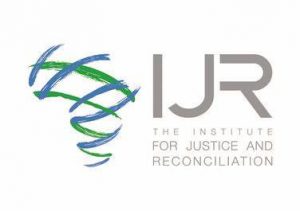
Anti-apartheid era police officer Joe Rodriguez is to face murder charges in relation to the death of apartheid struggle hero Ahmed Timol, nearly 50 years ago. This follows his having lost his legal bid for a stay of prosecution.
The Supreme Court of Appeal dismissed Joao ‘Jan’ Rodriguez’s appeal, in which he asked that he did not have to face trial at the Johannesburg High Court. The Institute for Justice and Reconciliation has welcomed the judgement of the appeals court.
Mufti Moosajee earlier this week interviewed the Head of Sustained Dialogues at the Institute, Felicity Harrison, who said it was important that Rodriguez stands trial for Ahmed Timol’s murder, for a number of reasons, the first being that our constitution states that we have to recognize the injustices of the past. Harrison said it’s important that we come to terms with the evils of apartheid, and that this was part of our justice and reconciliation project as a country. She said it was also important to prosecute apartheid crimes and to hold people to account, so that we can know the truth, and that there can be justice for the victims’ families.
In response to Mufti’s highlighting the obscene amounts spent by the state, on the defence of those standing trial for apartheid era crimes, such as the hundreds of thousands of Rand, spent on notorious Vlakplaas killer, Eugene De Kok, by the ANC government after his parole, Harrison said it was an issue that had to be looked into. She said that the amount spent in relation to the Rodriguez case was something like R2.3 million in state funds, and that South Africans had to make a decision as to whether this was what they wanted their taxes to be spent on. Harrison said that this is one of the questions that we need to be asking: Why taxpayers money was being used to aid and assist people who have been accused of crimes against humanity, and of crimes committed under apartheid.
Mufti then asked, in the Rodriguez situation, with him still not standing trial, was that not stealing the right of the Timol family to learn the truth about his death; after all they have been waiting for almost 50 years now. Harrison affirmed that that was one of the reasons the institution stood behind the work being done by the Timol family and others, who have relentlessly sought justice in South Africa. She said one of the issues raised with the Department of Justice, as well as the Presidency, along with their partners in the Coalition for Transitional Justice, was political interference in the prosecution of these cases. Harrison said that she believed there needed to be a commission of inquiry as to why, not only was the government in transition, but they also stopped the prosecutions from taking place
Upon Mufti inquiring if a speedy trial would ensure that the families of other struggle heroes killed by apartheid security forces find some hope that they would also get the truth and see some form of justice, Harrison said that this was absolutely important for the countless numbers of people who are waiting for justice, for their family members – including the members of the family of the Cradock Four, and for Imam Haroon – whose families have been waiting for decades for justice. She added that part of that time had been under a democratic dispensation.
Harrison reiterated that the institute believed that the case highlighted the problem of post-apartheid prosecutions of those who committed crimes under apartheid, saying, “I think for us it’s a two-pronged issue: first is that we need to, in the post-apartheid South Africa, be foregrounding the rights of victims and the victims’ families, and that includes prosecutions.” She added, “It’s also important for the state to be accountable, and that those who made decisions, as well as those who carried out the orders be held to account.” Harrison said, “The Truth and Reconciliation Commission gave people an opportunity to come forward and tell the truth, and where this has not happened as in the Rodriguez case, we believe that prosecutions are the right thing to do in terms of justice and reconciliation.”
Umm Muhammed Umar







0 Comments